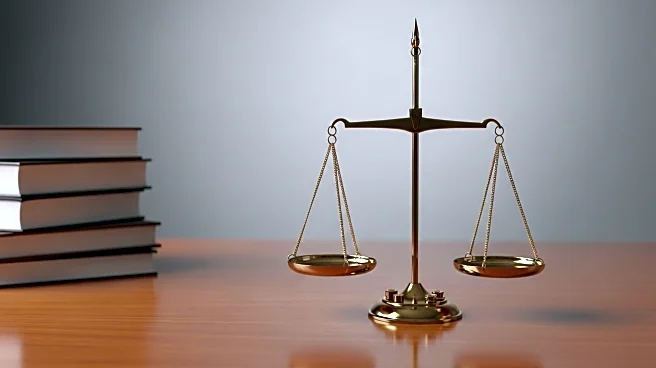What is the story about?
What's Happening?
Justice Anthony Kennedy, who served on the Supreme Court for 30 years, has released a memoir titled 'Life, Law & Liberty,' where he reflects on his judicial career and personal beliefs. In an interview with NPR, Kennedy discussed his views on abortion and capital punishment, highlighting moments where he reconsidered his stance. Initially, Kennedy viewed abortion as morally wrong, influenced by his Catholic faith. However, he emphasized the importance of separating personal beliefs from constitutional interpretation, ultimately supporting the right to abortion based on the concept of personal liberty. Kennedy also revisited his decision to allow the death penalty for juveniles, admitting he was wrong and later voting to ban it, influenced by new research on juvenile brain development.
Why It's Important?
Kennedy's reflections are significant as they offer insight into the judicial decision-making process and the balance between personal beliefs and constitutional duties. His change of heart on key issues like abortion and juvenile capital punishment underscores the evolving nature of legal interpretations and the impact of societal and scientific advancements on the law. These decisions have had lasting effects on U.S. legal precedents, influencing public policy and societal norms. Kennedy's memoir provides a rare glimpse into the complexities faced by Supreme Court justices and the importance of self-reflection in the pursuit of justice.
What's Next?
Kennedy's memoir may spark discussions on the role of personal beliefs in judicial decisions and the potential for change in legal interpretations over time. As the Supreme Court continues to address contentious issues, Kennedy's experiences could influence current and future justices in their deliberations. The book may also contribute to broader debates on the balance between individual liberties and moral considerations in U.S. law.
Beyond the Headlines
Kennedy's reflections highlight the ethical challenges faced by judges in maintaining impartiality while acknowledging personal convictions. His willingness to reconsider past decisions illustrates the dynamic nature of the judiciary and the importance of adapting to new information and societal changes. The memoir may encourage legal professionals and scholars to explore the intersection of law, morality, and personal growth in shaping judicial outcomes.














